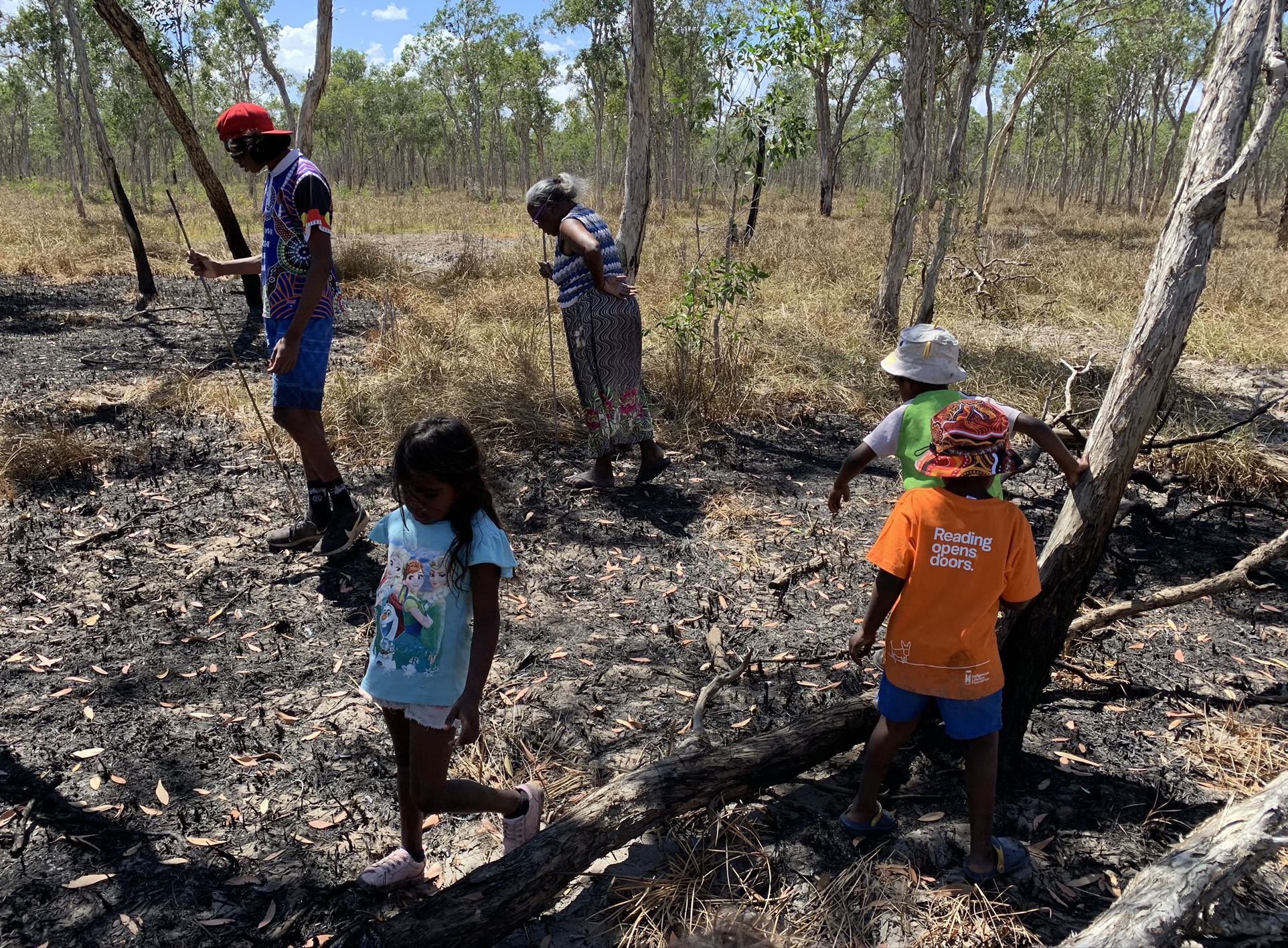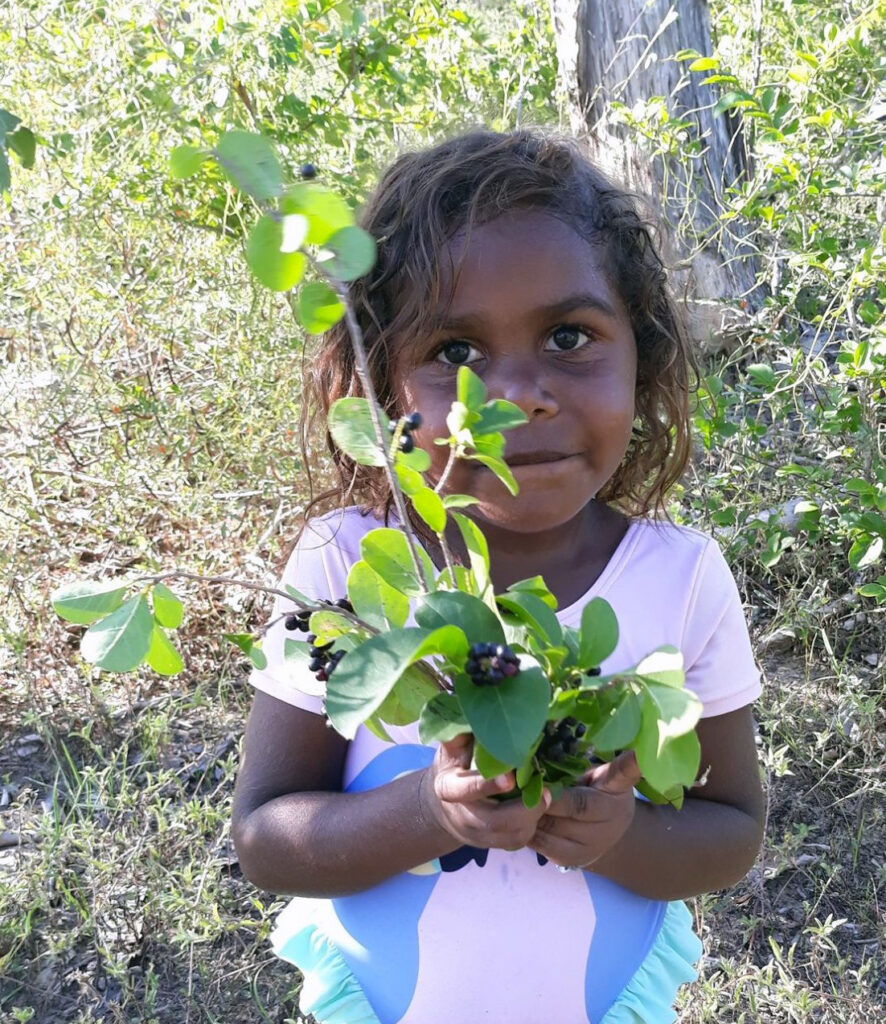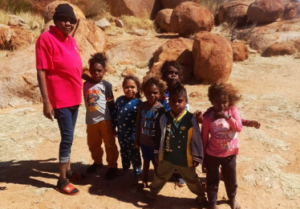Connecting to Country while Walking Learning
September 20, 2021
Whether it’s fishing on the banks of the MacArthur River, exploring the creek at Karlu Karlu, or turtle hunting in the bush, Indi Kindi classrooms have no walls.
Indi Kindi’s traditional Aboriginal teaching methodology is informed by 65,000 years of culture – we are emulating how Dreaming has always been taught. As Borroloola’s Law women say, you can’t talk Dreaming, you have to walk it, and this is at the heart of what we do.
The curriculum is specifically designed for young Aboriginal learners in that it is taught outside and on Country using Indi Kindi’s innovative and multi-sensory ‘Walking Learning’ model.

The Walking Learning model builds on the measurable link between movement and cognitive function to boost positive behaviour, engagement and performance. It encourages creativity, resourcefulness, and curiosity—all skills learned through the dynamic interaction of children with each other and connection to the world around them.
Outdoor learning is particularly important for Aboriginal children, many of whom experience difficulties with auditory processing through hearing loss. In a traditional classroom where sound bounces off the wall it can be disorientating, and affect the cooperation and attention spans of very young Aboriginal children.
Walking Learning examples:

Benefits of Walking Learning:
Walking Learning addresses all developmental areas:
National and international research shows interacting with the environment provides optimum conditions for visual, auditory and kinaesthetic learning for the very young. The research strongly endorses walking learning delivered outdoors improves behaviour and engagement for learning rather than within a classroom environment in purpose built rooms.
For instance, findings from the “Outdoor learning and play at schools around the world” report, (Cath Prisk and Dr Harry Cusworth, Nov 2018, p11) explain “the benefits of outdoor learning and play last beyond early education. Preschool children who enjoy large amounts of outdoor time have been shown to consistently score better on standardised tests for executive function, attention and short-term memory than children attending preschools that have fewer outdoor hours in the school day. Those children who enjoy more outdoor time during preschool continue to score better on standardised testing once they have moved into primary education“.
Further, “Time spent outdoors boosts mental health. Research from around the world points to the ability of nature to restore our sense of wellbeing. Children feel better and perform better after they have been outdoors. Getting outdoors helps children feel calmer, helps process their day and builds the holy grail of capabilities: resilience. Above all else, being outdoors simply makes us feel alive, feel joy; and feeling joy on a regular basis is an essential foundation for a good childhood and healthy later life.”

Indi Kindi’s Walking Learning methodology aims to:
Latest News